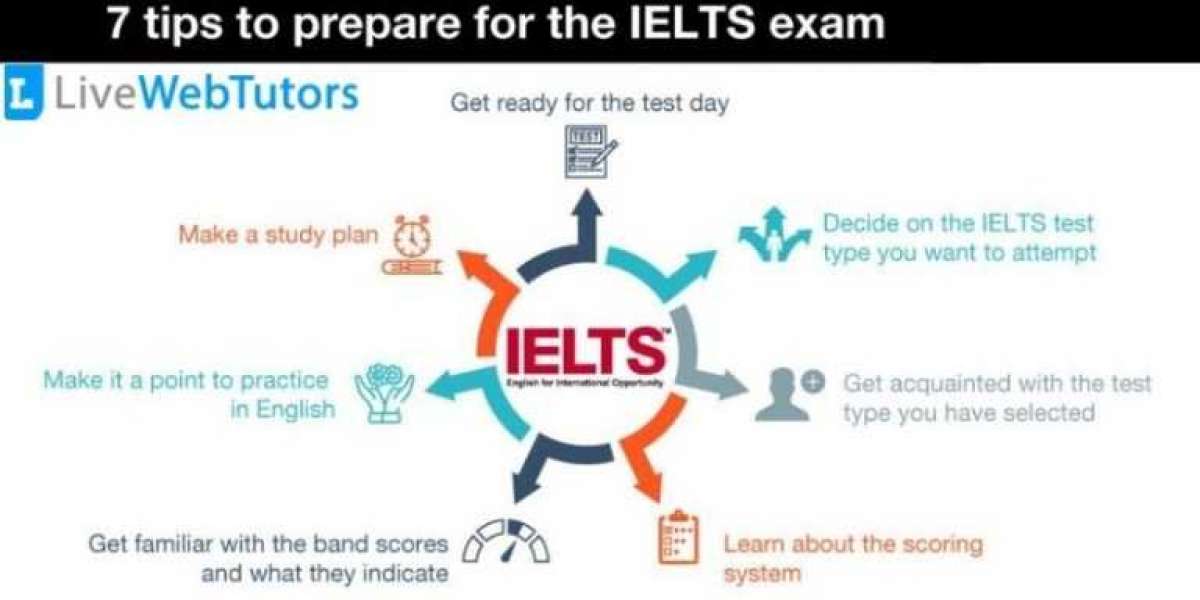Overview
Preparing for your IELTS exam may be intimidating, and you may be unsure where to begin, which is why we’ve put up a list of helpful tips to get you started.
Begin your preparation by taking a practice exam to discover your strengths and weaknesses. This is an important component of your initial preparation since it will help you identify your strengths and shortcomings. It is not only vital to address your deficiencies, but it is also necessary to build on your strengths in order to lay a firm foundation for the exam.
However, if you find it difficult to avoid making these errors or if you can’t properly recognize them, you’ll need the help of a professional. Most test-takers consider taking an IELTS preparation course, which is one of the most straightforward methods to prepare for the exam because it focuses entirely on making you exam-ready for IELTS.
Top 7 steps to take before you appear for IELTS:
Be familiar with the test format.
It’s critical that you know what to expect from the exam format before you start practicing. Review the test’s content as well as the question and assignment categories for each part to become familiar with it.
Remember that the key to success in any exam, not only IELTS, is a thorough understanding of the test structure and format.
Recognize the exam’s time restrictions.
The better comprehension you have of the exam format, the more likely you are to complete it successfully within the time period allotted.
Improve your English skills and IELTS techniques.
One of the most common blunders students make is concentrating solely on the IELTS exam. They take a lot of IELTS practice exams, but they overlook the importance of improving their English.
It’s important to remember that studying IELTS is a process. Moving up a score band by one point takes an average of 12 weeks.
Start studying for your exam at least 3–6 months ahead of time. We strongly advise you to seek out an institution that can assist you with English improvement and IELTS methods.
Listening in English while multitasking
The IELTS test is notoriously difficult, and the hearing module is no exception. You’ll have to answer 40 questions throughout the course of four recordings. Only one time will the recordings be aired? Sentence completion, summary completion, form completion, and multiple-choice questions are all common types of questions.
It’s okay if you get lost in the middle of a conversation, but you must recover quickly or you will miss the rest of the task’s questions. This is going to be a disaster. As a result, knowing how to follow a discussion, even if you miss something, and how to recover so you can continue answering the following questions, is critical.
Develop a diverse set of reading abilities
The reading module’s main goal is to assess a wide variety of reading abilities. Reading for gist, key ideas, detail, skimming, comprehending logical argument, and recognizing the authors’ viewpoints, attitudes, and purpose
Short responses, matching facts, entire phrases, matching headers, and complete diagram labels are all required of test-takers. Make sure you practice with a range of questions so you can become familiar with each type.
In the reading module, timing is crucial, and you simply will not have enough time to read the texts many times. There are techniques that might assist you to avoid getting into this position. For instance how to scan the material and what information to pay attention to
Use suitable and forceful English phrases.
The writing module is perhaps the most difficult for most students. Both academic training assignments must be prepared in a formal style.
Task 1 needs you to describe and explain data, which you may be an expert at, but it also takes a lot of English experience.
Task 2 poses a variety of difficulties. If you are unfamiliar with the issue, it might be difficult to grow. Furthermore, the essay must be well-structured.
You must be ready to respond to both jobs and comprehend their needs.
A preparatory course will introduce you to the many sorts of essays that often appear on the IELTS exam, such as Agree or Disagree, Contrast and Contrast, Contrast and Contrast, Contrast and Contrast, Contrast and Contrast, Contrast and Contrast, Discuss two opposing viewpoints, benefits and drawbacks, problems and solutions, causes and solutions, and effects and causes.
Speak with fluency and coherence.
This test is divided into three sections and lasts less than 15 minutes. The first five minutes are set aside for the test taker and the examiner to introduce them and discuss basic subjects. The test taker’s ability to talk on a random topic supplied on a task card is assessed in the second half. The last section just adds to the second’s intricacy. The examiner will also consider pronunciation, lexical resource, and fluency at this level.
Practicing each component under exam conditions is critical to your test preparation and will help you become accustomed to the strain you’ll face on test day. You must be able to take notes that will assist you in speaking for two minutes during the second section of the test.
Remember that perseverance is the key to exam success during the preparation process.
Conclusion:
Practice English every day by writing a journal, keeping a blog, or talking with individuals in an online community. Who share an interest with you, such as members in a Facebook group. Listen to native speakers conversing and, if feasible, engage in. Make use of the ‘shadowing’ method. This entails repeating in English what someone has just stated. This will help with emphasis, intonation, and pronunciation.
Remember that self-learning is feasible if you are dedicated and locate someone who can provide you with feedback. Locate an organization that can assist you and provides feedback if you are unwilling to commit or cannot find a suitable spouse.
This article written by : genuine essay writing service uk providers
Read More : When Are Data Confidentiality Policies Applicable in A Business?
nursing assignment writing service
nursing assignment writing service uk








